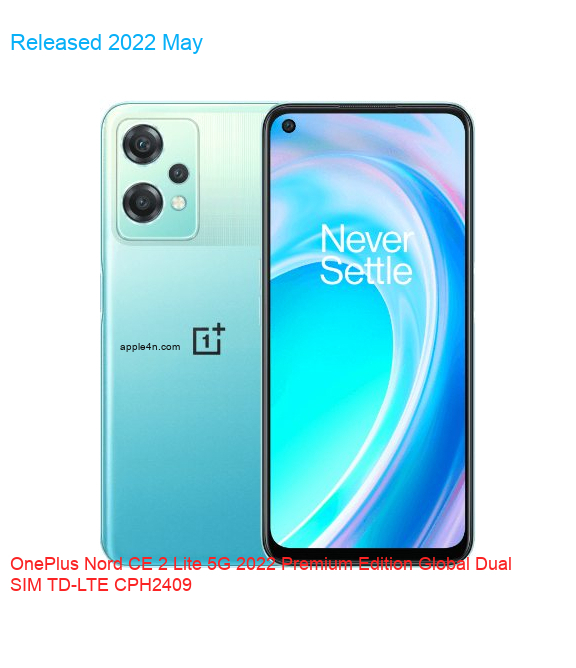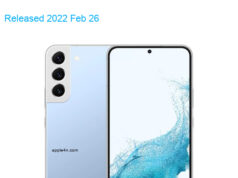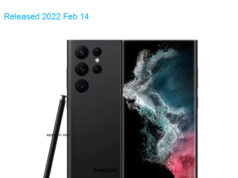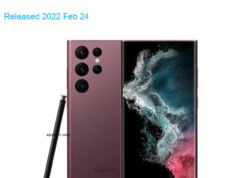| Brand | OnePlus |
| Model | Nord CE 2 Lite 5G 2022 Premium Edition Global Dual SIM TD-LTE CPH2409 |
| Released | 2022 May |
| Announced | 2022 Apr 28 |
| Hardware Designer | Oppo |
| Manufacturer | BBK Electronics |
| Codename | BBK 2381 |
| General Extras | Haptic touch feedback |
| Device Category | Smartphone |
| Width | 75.6 mm |
| Height | 164.3 mm |
| Depth | 8.5 mm |
| Dimensions | 2.98×6.47×0.33 inches |
| Mass | 195 g |
| Platform | Android |
| Operating System | Google Android 12 (S) |
| Software Extras | Voice Command , Navigation software , Augmented Reality (AR) , Intelligent personal assistant , Face Recognition |
| CPU Clock | 2200 MHz |
| CPU | Qualcomm Snapdragon 695 5G SM6375, 2021, 64 bit, octa-core, 6 nm, Qualcomm Adreno 619 GPU |
| RAM Type | LPDDR4x SDRAM |
| RAM Capacity (converted) | 8 GiB RAM |
| Non-volatile Memory Interface | UFS 2.2 |
| Non-volatile Memory Capacity (converted) | 128 GB ROM |
| Display Hole | 1-hole |
| Display Diagonal | 167.3 mm |
| Resolution | 1080×2412 |
| Horizontal Full Bezel Width | 7.23 mm |
| Display Area Utilization | 84.0% |
| Pixel Density | 401 PPI |
| Display Type | Color IPS TFT LCD display |
| Number of Display Scales | 16.8M |
| Display Refresh Rate | 120 Hz |
| Scratch Resistant Screen | Yes |
| Graphical Controller | Qualcomm Adreno 619 |
| GPU Clock: | 1100 MHz |
| A/V Out | No |
| Microphone(s) | stereo |
| Loudspeaker(s): | stereo |
| Audio Output: | 3.5mm |
| Supported Cellular Bands | GSM850 , GSM900 , GSM1800 , GSM1900 , UMTS2100 (B1) , UMTS1900 (B2) , UMTS1700/2100 (B4) , UMTS850 (B5) , UMTS800 (B6) , UMTS900 (B8) , UMTS800 (B19) , LTE2100 (B1) , LTE1900 (B2) , LTE1800 (B3) , LTE1700/2100 (B4) , LTE850 (B5) , LTE2600 (B7) , LTE900 (B8) , LTE700 (B12) , LTE700 (B13) , LTE700 (B17) , LTE800 (B18) , LTE800 (B19) , LTE800 (B20) , LTE850 (B26) , LTE700 (B28) , TD-LTE2600 (B38) , TD-LTE1900 (B39) , TD-LTE2300 (B40) , TD-LTE2500 (B41) , LTE1700/2100 (B66) , NR2100 (N1) , NR1800 (N3) , NR850 (N5) , NR2600 (N7) , NR900 (N8) , NR800 (N20) , NR700 (N28) , TD-NR2600 (N38) , TD-NR2300 (N40) , TD-NR2500 (N41) , NR1700/2100 (N66) , TD-NR3700 (N77) , TD-NR3500 (N78) bands |
| Supported Cellular Data Links | GPRS , EDGE , UMTS , HSUPA , HSUPA 5.8 , HSDPA , HSPA+ 21.1 , HSPA+ 42.2 , DC-HSDPA 42.2 , LTE , LTE 100/50 , LTE 150/50 , LTE 300/50 , LTE 450/50 , LTE 600/50 , NR 2600 , NR 3700 data links |
| SIM Card Slot | Nano-SIM (4FF) |
| Complementary Phone Services | Voice transmission , Voice speaker , Vibrate , Speakerphone , ANC , HD Voice , VoLTE |
| Dual Cellular Network Operation | Dual standby |
| Sec. Supported Cellular Networks: | GSM850 , GSM900 , GSM1800 , GSM1900 , UMTS2100 (B1) , UMTS1900 (B2) , UMTS1700/2100 (B4) , UMTS850 (B5) , UMTS800 (B6) , UMTS900 (B8) , UMTS800 (B19) , LTE2100 (B1) , LTE1900 (B2) , LTE1800 (B3) , LTE1700/2100 (B4) , LTE850 (B5) , LTE2600 (B7) , LTE900 (B8) , LTE700 (B12) , LTE700 (B13) , LTE700 (B17) , LTE800 (B18) , LTE800 (B19) , LTE800 (B20) , LTE850 (B26) , LTE700 (B28) , TD-LTE2600 (B38) , TD-LTE1900 (B39) , TD-LTE2300 (B40) , TD-LTE2500 (B41) , LTE1700/2100 (B66) , NR2100 (N1) , NR1800 (N3) , NR850 (N5) , NR2600 (N7) , NR900 (N8) , NR800 (N20) , NR700 (N28) , TD-NR2600 (N38) , TD-NR2300 (N40) , TD-NR2500 (N41) , NR1700/2100 (N66) , TD-NR3700 (N77) , TD-NR3500 (N78) |
| Sec. Supported Cellular Data Links: | GPRS , EDGE , UMTS , HSUPA , HSUPA 5.8 , HSDPA , HSPA+ 21.1 , HSPA+ 42.2 , DC-HSDPA 42.2 , LTE , LTE 100/50 , LTE 150/50 , LTE 300/50 , LTE 450/50 , LTE 600/50 , NR 2600 , NR 3700 |
| Sec. SIM Card Slot | Nano-SIM (4FF) |
| Touchscreen Type | Capacitive multi-touch screen |
| Expansion Interfaces | TransFlash , microSD , microSDHC , microSDXC |
| USB | USB 2.0 |
| USB Services | USB charging , USB fast charging , USB Host , USB OTG 1.3 , USB OTG 2.0 , USB PD , USB PD 2.0 |
| USB Connector | USB C reversible |
| Max. Charging Power | 33.0 W |
| Bluetooth | Bluetooth 5.2 |
| Wireless LAN | 802.11a , 802.11b , 802.11g , 802.11n , 802.11ac |
| Wireless Services | Wi-Fi Direct , Wi-Fi Tethering , WiDi , Wi-Fi Calling |
| NFC | NFC A , NFC B |
| FM Radio Receiver | No |
| Complementary Satellite Services | Simultaneous GPS , A-GPS , Geotagging , QuickGPS |
| Supported GLONASS protocol(s) | L1OF |
| Supported Galileo service(s) | E1 |
| Supported BeiDou system (BDS) | B1I BeiDou receiver |
| Camera Placement | Rear |
| Camera Image Sensor | BSI CMOS |
| Image Sensor Pixel Size | 0.70 micrometer |
| Number of effective pixels | 64.1 MP camera |
| Aperture (W) | f/1.79 |
| Zoom | 1.0 x optical zoom |
| Focus | PD AF |
| Min. Equiv. Focal Length | 26 mm |
| Video Recording | 1920×1080 pixel |
| Flash | single LED |
| Camera Extra Functions | EIS (video) , Pixel unification , HDR photo , HDR video , Red-eye reduction , Slow motion video , Burst mode , Touch focus , Panorama Photo , Face detection , Face tagging , Smile detection , Face retouch , Intelligent scene detection |
| Aux. Camera Image Sensor | CMOS |
| Aux. Cam. Image Sensor Pixel Size | 1.12 micrometer |
| Aux. Camera Number of Pixels | 1.9 MP aux. cam |
| Aux. Camera Aperture (W) | f/2.40 |
| Aux. Cam. Min. Equiv. Focal Length | 15.62 mm |
| Aux. Camera Extra Functions | HDR photo , Burst mode , Face detection , Face tagging , Smile detection |
| Aux. 2 Camera Image Sensor | CMOS |
| Aux. 2 Camera Number of Pixels | 1.9 MP aux. 2 cam |
| Aux. 2 Camera Aperture (W) | f/2.40 |
| Aux. 2 Cam. Min. Equiv. Focal Length | 21.88 mm |
| Aux. 3 Camera Image Sensor | No |
| Aux. 4 Camera Image Sensor | No |
| Secondary Camera Placement | Front |
| Secondary Camera Sensor | BSI CMOS |
| Secondary Camera Number of pixels | 15.9 MP sec. cam |
| Secondary Aperture (W) | f/2.00 |
| Secondary Video Recording | 1920×1080 pixel |
| Secondary Camera Extra Functions | EIS (video) , HDR photo , Burst mode , Panorama Photo , Face detection , Face tagging , Smile detection , Face retouch , Intelligent scene detection |
| Sec. Aux. Cam. Image Sensor | No |
| Built-in compass | Yes |
| Built-in accelerometer | 3D accelerometer |
| Built-in gyroscope | 3D gyro |
| Additional sensors | FP sensor , L sensor , P sensor |
| Protection from solid materials | Yes |
| Protection from liquids | Yes |
| Battery | Li-ion polymer (LiPo) |
| Nominal Battery Voltage | 3.87 Volts |
| Nominal Battery Capacity | 5000 mAh battery |
| Nominal Battery Energy | 19.35 Wh |
| Market Countries | Australia , Bangladesh , Bulgaria , Chile , Egypt , HK , Indonesia , Israel , Jordan , Kazakhstan , Kuwait , Malaysia , Mexico , Myanmar , Nepal , Pakistan , Philippines , Russia , Saudi Arabia , Singapore , Switzerland , Taiwan , Thailand , Tunisie , UAE , Vietnam |
| Market Regions | Africa , Asia , Australia , Eastern Europe , Europe , Middle East , North America , Oceania , South America , Southeast Asia , Worldwide |
| Price | 336.75 USD |
| Added | 2025-02-28 |
Specifications data description of this 📱OnePlus Nord CE 2 Lite 5G 2022 Premium Edition Global Dual SIM TD-LTE CPH2409📱
Title: OnePlus Nord CE 2 Lite 5G 2022 Premium Edition Global Dual SIM TD-LTE CPH2409: A Complete Specification Guide
Introduction:
The OnePlus Nord CE 2 Lite 5G 2022 Premium Edition Global Dual SIM TD-LTE CPH2409 is the latest addition to the OnePlus family. This device is designed to offer a premium user experience, with a sleek design and top-of-the-line specifications. In this blog post, we will take a closer look at the specifications of this device and what makes it stand out.
Lineup:
The OnePlus Nord CE 2 Lite 5G 2022 Premium Edition Global Dual SIM TD-LTE CPH2409 is part of the Nord CE lineup, which is known for its premium features and affordable price point. This device is designed to offer a premium user experience, with a sleek design and top-of-the-line specifications.
Design:
The OnePlus Nord CE 2 Lite 5G 2022 Premium Edition Global Dual SIM TD-LTE CPH2409 has a sleek and modern design. The device has a glass back and a metal frame, giving it a premium look and feel. The device is available in two colors: Midnight Black and Blue Quantum. The device has a 6.4-inch Fluid AMOLED display with a resolution of 1080 x 2400 pixels and a refresh rate of 90Hz.
Specifications:
🌐 Network: The device supports TD-LTE, LTE-TDD, LTE-FDD, and WCDMA networks.
📅 Launch: The device was launched in 2022.
🏋️ Body: The device has a glass back and a metal frame, with a weight of 179g and dimensions of 159.2 x 73.5 x 7.9mm.
🌈 Display: The device has a 6.4-inch Fluid AMOLED display with a resolution of 1080 x 2400 pixels and a refresh rate of 90Hz.
🤖 OS: The device runs on OxygenOS 11, based on Android 11.
🛠️ Chipset: The device is powered by the Qualcomm Snapdragon 750G 5G chipset.
💪 CPU: The device has an Octa-core (2×2.2 GHz Kryo 570 & 6×1.8 GHz Kryo 570) CPU.
🖥️ GPU: The device has an Adreno 619 GPU.
🗂️ Memory: The device has 6/8GB of RAM and 64/128GB of internal storage.
📷 Camera: The device has a triple camera setup, with a 64MP primary sensor, an 8MP ultra-wide sensor, and a 2MP depth sensor. The device also has a 16MP selfie camera.
🔈 Sound: The device has stereo speakers, with support for Dolby Atmos.
📡 Comms: The device has Wi-Fi 802.11 a/b/g/n/ac/ax, Bluetooth 5.1, GPS, NFC, and a USB Type-C port.
💡 Features: The device has an in-display fingerprint sensor, face unlock, and support for 5G networks.
🔋 Battery: The device has a 4500mAh battery, with support for Warp Charge 30T Plus.
Conclusion:
The OnePlus Nord CE 2 Lite 5G 2022 Premium Edition Global Dual SIM TD-LTE CPH2409 is a device that offers a premium user experience, with a sleek design and top-of-the-line specifications. The device has a powerful chipset, a high-resolution display, and a versatile camera setup. The device is also 5G-ready, making it future-proof. We invite readers to leave a comment and let us know what they think about this device.








